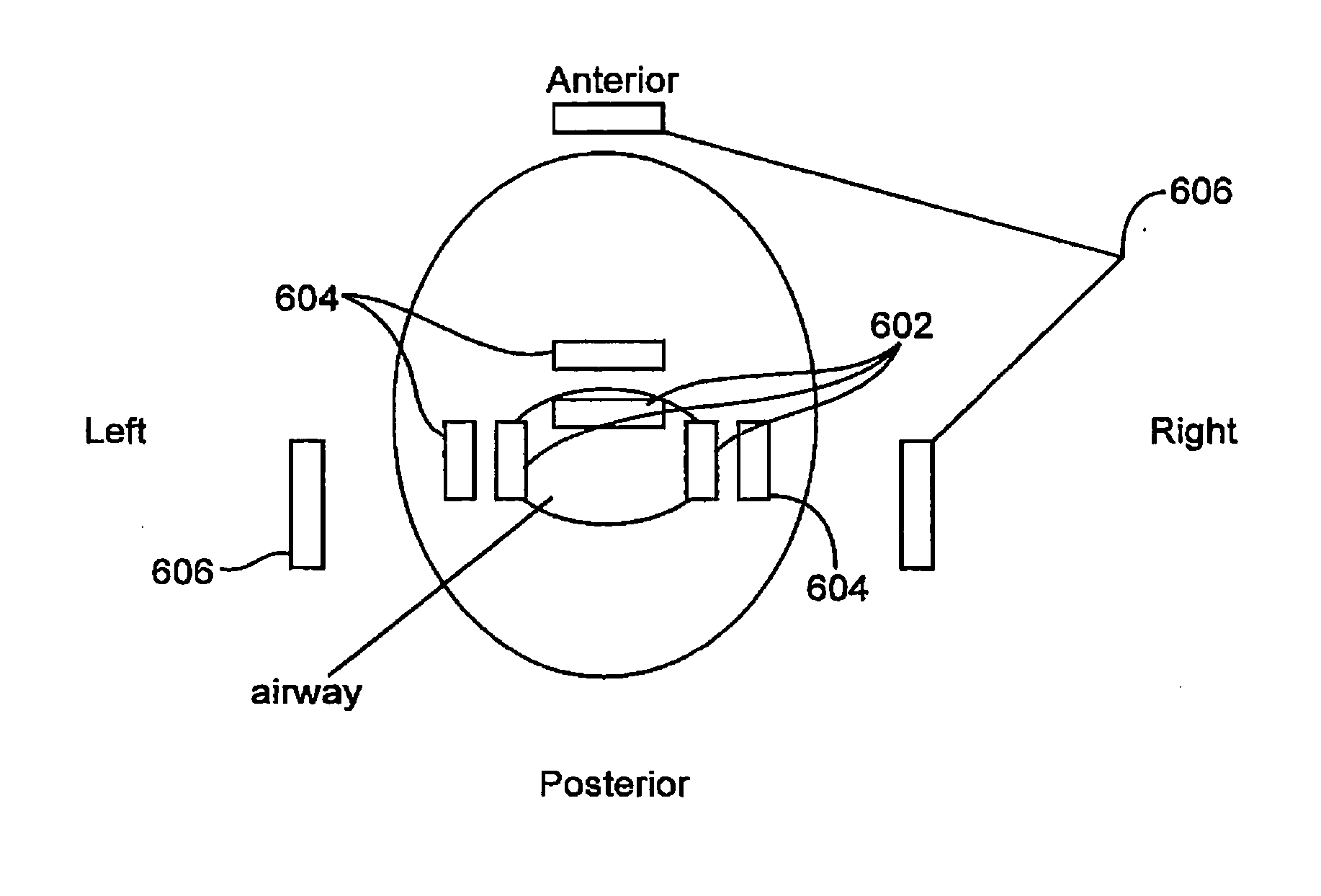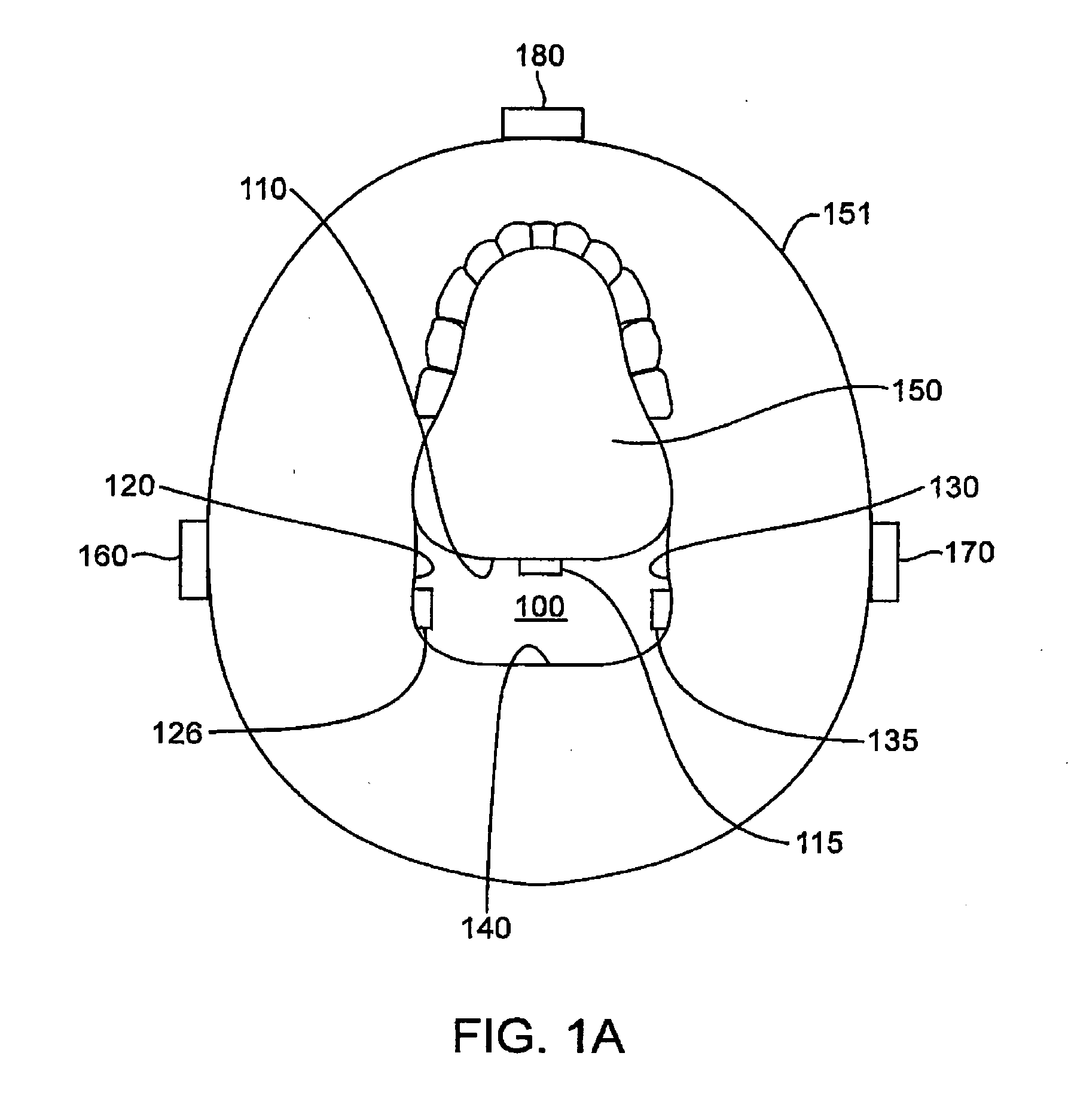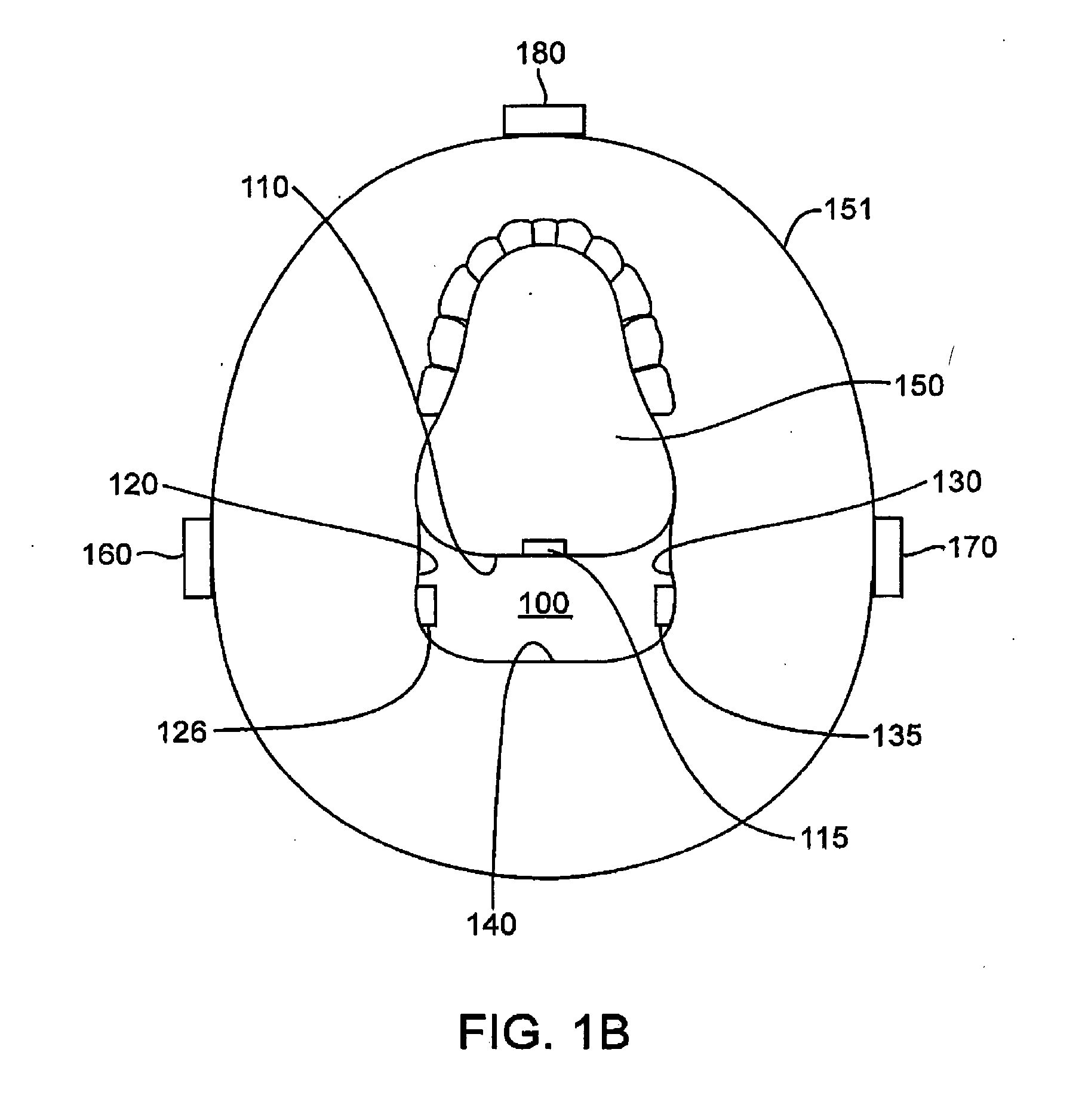Altering the stiffness, size and/or shape of tissues for breathing disorders and other conditions
a breathing disorder and tissue technology, applied in the field of tissue stiffness, size and/or shape of tissues, can solve the problems of patients typically suffering from sleep deprivation, tiredness or fatigue, disrupt normal sleep, etc., and achieve the effects of reducing the risk of sleep-related breathing disorder
- Summary
- Abstract
- Description
- Claims
- Application Information
AI Technical Summary
Benefits of technology
Problems solved by technology
Method used
Image
Examples
Embodiment Construction
[0048] As used herein, “attaching” a material to a tissue structure (such as an airway wall or the like) encompasses inserting, implanting, and / or embedding the material into the tissue structure, as well as affixing the tissue structure to an exposed surface of the tissue structure or the like.
[0049]FIG. 1A illustrates a coronal view of an upper airway 100 having a system for treating sleep apnea (and other sleep-related breathing disorders, e.g., snoring) in accordance with one embodiment of the invention. The upper airway 100 is generally defined by the anterior pharyngeal wall 110, two lateral pharyngeal walls 120, 130 and the posterior pharyngeal wall 140. The lateral pharyngeal walls 120, 130 generally include lateral pharyngeal tissue extending superiorly to the velopharynx and inferiorly to the epiglottis. The posterior pharyngeal wall 140 generally includes posterior pharyngeal tissue extending superiorly to the velopharynx and inferiorly to the epiglottis. The anterior ph...
PUM
 Login to View More
Login to View More Abstract
Description
Claims
Application Information
 Login to View More
Login to View More - R&D
- Intellectual Property
- Life Sciences
- Materials
- Tech Scout
- Unparalleled Data Quality
- Higher Quality Content
- 60% Fewer Hallucinations
Browse by: Latest US Patents, China's latest patents, Technical Efficacy Thesaurus, Application Domain, Technology Topic, Popular Technical Reports.
© 2025 PatSnap. All rights reserved.Legal|Privacy policy|Modern Slavery Act Transparency Statement|Sitemap|About US| Contact US: help@patsnap.com



